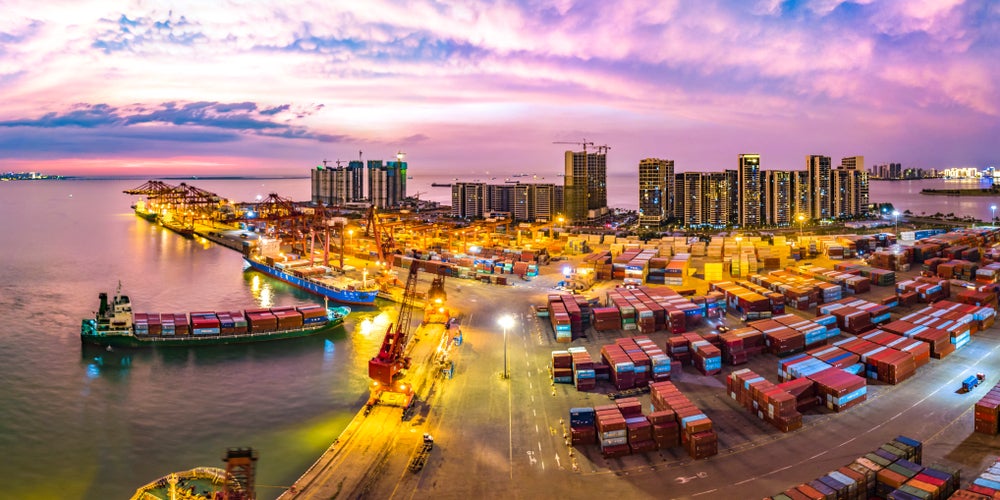
Each week, Railway Technology’s journalists pick out insights from company filings that highlight sentiments in our sector. These filings signals are based on GlobalData’s analysis of earnings statements, call transcripts, investor presentations and sustainability reports. They tell us about key topics on the minds of business leaders and investors, and the themes driving a company’s activities.
This new, thematic filings coverage is powered by our underlying Disruptor data which tracks all major deals, patents, company filings, hiring patterns and social media buzz across our sectors.
Filings by transport and infrastructure companies are preoccupied by geopolitics more than any other disruptive theme, despite a slight dip in Q2 2023 mentions.
Research by GlobalData has identified geopolitics as being cited in 1,291 filings in Q2 2023 and ESG, the second-highest theme, in 746 filings.
Geopolitics also led transport and infrastructure company filings in 2022. Of the 26,250 mentions, 4,587 were made in China – more than any other nation. India came in at second with 3,570.
Tumultuous diplomatic relations between the two Asian superpowers are likely driving this geopolitical engagement.
How well do you really know your competitors?
Access the most comprehensive Company Profiles on the market, powered by GlobalData. Save hours of research. Gain competitive edge.

Thank you!
Your download email will arrive shortly
Not ready to buy yet? Download a free sample
We are confident about the unique quality of our Company Profiles. However, we want you to make the most beneficial decision for your business, so we offer a free sample that you can download by submitting the below form
By GlobalDataInvestment in transport and infrastructure projects has long been a way to exert soft geopolitical power, exemplified by China’s Belt and Road Initiative (BRI). As a global infrastructure development strategy investing in more than 150 countries, the BRI has caused concern among Indian government officials and business leaders about Beijing’s influence across Asia and Africa.
The BRI has allocated funding to Chinese rail links with Nepal – an aim of both nations. China intends to construct a 75-kilometer railway line from Kerung to Kathmandu, while India is working on a plan to build a 141km Raxaul-Kathmandu line.
Given that India is also dependent on the Chinese supply chain for the raw materials needed to meet the growing demand for electric vehicles (EVs), it is unlikely that geopolitical filings relating to transport in India and China will decrease.

